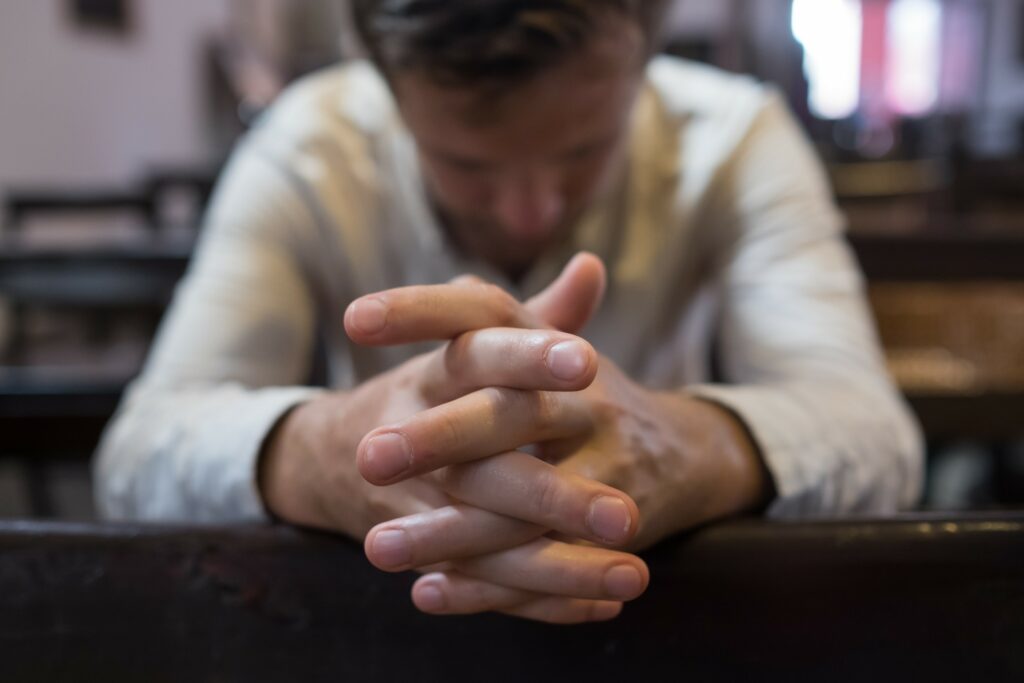“Say to the Israelites: ‘Any man or woman who wrongs another in any way and so is unfaithful to the LORD is guilty and must confess the sin they have committed. They must make full restitution for the wrong they have done, add a fifth of the value to it and give it all to the person they have wronged.’” — Numbers 5:6–7
Humans tend to accumulate a lot of things in their short lives: knick-knacks, souvenirs, clothes, books. We also tend to accumulate a lot of sins, those times that we have done or said something that we know was wrong but we did anyway. While we may have had what we rationalized was a good reason at the time, nonetheless, those sins caused someone harm.
After a lifetime of accumulating them, some of us are buried under the weight of our sins, the weight eventually crushing us.
Those sins can be small or large, ranging from small white lies to actual physical damage of another person or worse. For some the sin is not necessarily against another person; it is possible to sin against yourself, such as lying to yourself or causing yourself harm can count just as much as lying or harming someone else.
These sins tend to accumulate over a lifetime, and the regrets caused by them, a burden that will cause the soul of a person to be crushed under the weight of those sins.
We desperately need to unburden ourselves, and confession is sometimes the best way to start.
Starting Down the Path of Confession
This is nothing new. One of the first things that any psychiatrist will ask is what a person thinks their problems are; without knowing what the problem is the therapy cannot go forward.
In the various twelve-step programs, admitting that you have done wrong and then seeking to address those wrongs are part of the program. Even when stopping by the church to visit the confessional is part of the process; the priest cannot accurately prescribe penance without knowing what the person did.
In each of these methods, the first step is to confess one’s sins. You need to admit that you have sinned before you can begin to unburden yourself. The specifics do not matter so much as admitting that you have wronged someone in the past, even that person is just yourself.
Once you have made the initial confession of guilt you can go into the specifics, but just admitting that you sin is the first step that needs to be made. That first step is the biggest one, and the one that will allow you to admit the rest of the problem.
Getting Some Help
The biggest problem you will have is deciding how to share your sins. The ideal person to discuss this problem with is your spiritual leader, be it a priest, a rabbi, or imam; this person should be able to either help your unburden yourself or set you on the right path.
This is one strength of established religion: They tend to have rituals for just about everything and thus have a ready answer for someone looking to confess their sins. This applies even to more informal philosophies; they should have something that can help.
For those without that support, a psychiatrist or counselor should be consulted. Burdening sin is seen as a form of guilt; that overwhelming burden is something that is well within their bailiwick. Part of their training is how to look for problems, pull them out, and explore them in order to better deal with them.

Coming in with an idea of your problems can only help the process; it helps the psychiatrist get to the problem that much quicker. However, do not assume that the process will be easy or quick even with that knowledge as the treatment of entrenched problems is never as easy or quick as people would like.
There are other means should you be unable or unwilling to take advantage of those means. You can always attempt to talk to those you have wronged in order to determine how to move forward. Some people will forgive you but others may want you to disappear; there is no real way to predict which way the person themselves may go with.
With some people it is easy to determine a way forward, others may require something much more difficult; again, no two people are the same and it can be difficult to predict. Nonetheless, if you are truly trying to deal with the guilt then discussing it with the person you have wronged and confessing your sin to them is sometimes a necessary first step.
Lastly, keep in mind that some cultures may have their own ways of dealing with sin. Sometimes just shouting your sins to the wind is sufficient, others may require seeking out the local holy person and discussing the problem as well as how to redress the situation; every culture is different and how you redress the victims is different.
However, yet again every situation is different and you will not know for sure until you ask.
Why You Need to Confess Your Sins
You should note there has been a common them of confession and redress. The problem is that merely confessing your sins is not enough; people feel that there needs to some sort of penalty to properly assuage their guilt.
That is, if someone is truly interested in expunging their sins they need to not only confess the sin but their own need for punishment requires that there be a punishment. Even if you have sinned against yourself you need to pay some sort of price for the harm you have done yourself.
However, confessing your sins is something that you need to look into at some point. Sin is capable of crushing a person, making them unable and unwilling to advance themselves, and may even cause physical diseases as you seek to punish yourself.
By confessing your sins and doing what you can to redress them, even sins against yourself, you set yourself on the path to healing. Without confession, you will never start on that path; you will condemn yourself to your own punishment. With that in mind, find a way to confess your sins and you will find a new form of freedom for yourself, making the confession well worth it.
Pray This Prayer
Dear God,
Please forgive my sins of the past and the sins of the future, for I am not perfect and will likely sin again. Help me find a path to redress those I have wronged, to at least partially undo the damage I have wrought on others. Help me to make better decisions, decisions based not on selfish desire but to aid the greater good.
Help me to learn from my mistakes and how to avoid those mistakes in the future. Thank You for Your love and that You love me despite my flaws. I promise to stay on the path of right, but please warn me should I stray.
Amen


